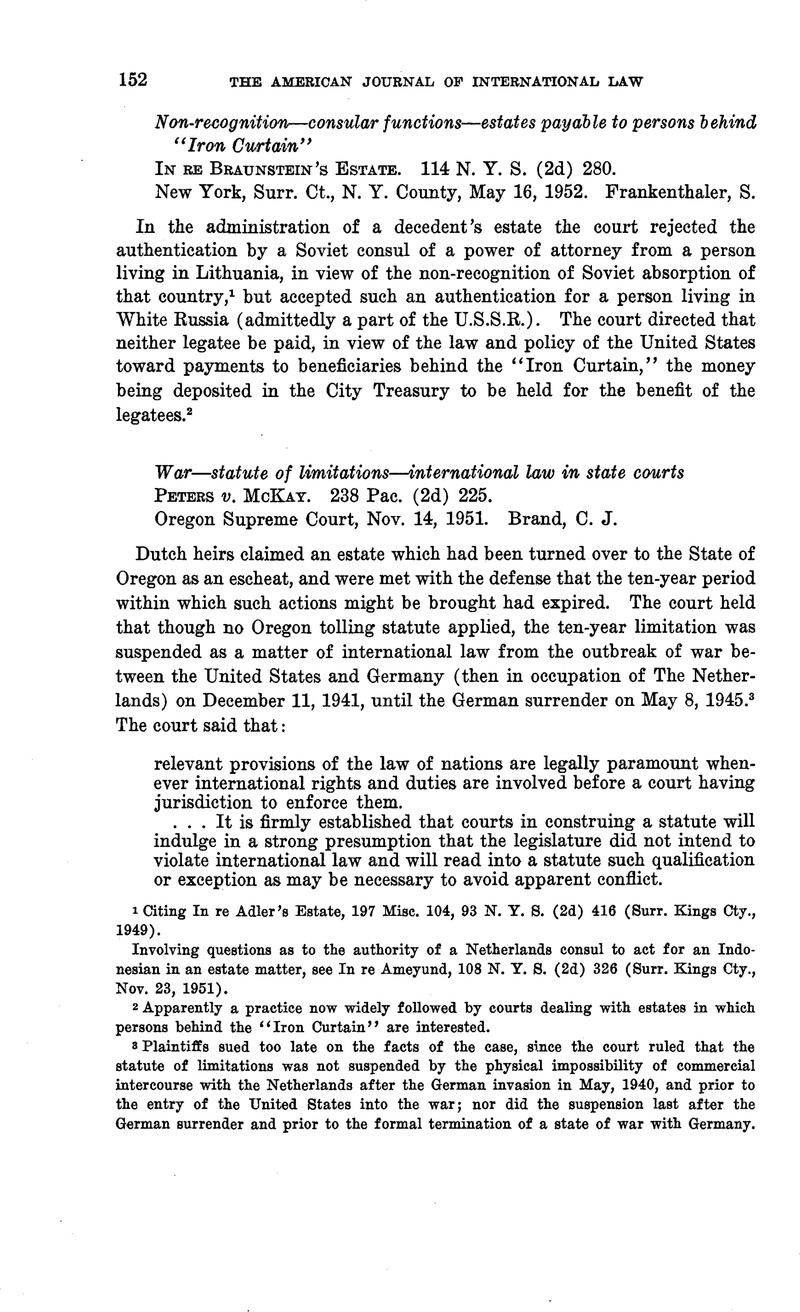No CrossRef data available.
Published online by Cambridge University Press: 20 April 2017

1 Citing In re Adler’s Estate, 197 Misc. 104, 93 N. Y. S. (2d) 416 (Surr. Kings Cty., 1949).
Involving questions as to the authority of a Netherlands consul to act for an Indonesian in an estate matter, see In re Ameyund, 108 N. Y. 8. (2d) 326 (Surr. Kings Cty., Nov. 23, 1951).
2 Apparently a practice now widely followed by courts dealing with estates in which persons behind the “Iron Curtain” are interested.
3 Plaintiffs sued too late on the facts of the case, since the court ruled that the statute of limitations was not suspended by the physical impossibility of commercial intercourse with the Netherlands after the German invasion in May, 1940, and prior to the entry of the United States into the war; nor did the suspension last after the German surrender and prior to the formal termination of a state of war with Germany.
4 Plaintiffs, though nationals of an Allied country, were to be regarded as enemy aliens and thus barred from suing in Oregon during the war, because of their residence in enemy-occupied territory.
In Oerlikon Machine Tool Works v. U. S., 102 F. Supp. 417 (Ct. Cls., Feb. 5, 1952), the statute of limitations was held to be tolled in favor of a Swiss corporation which had lacked capacity to sue during the war because it had been placed on the Proclaimed List as an enemy.